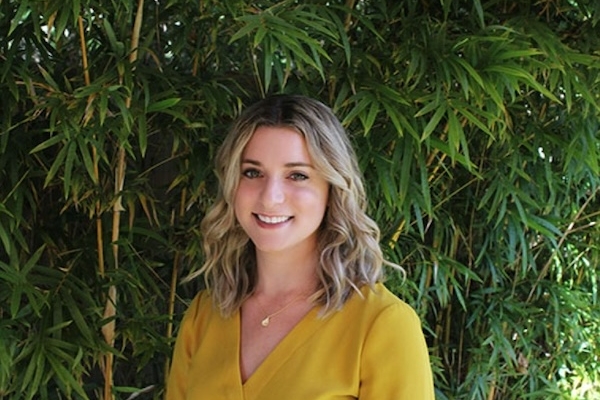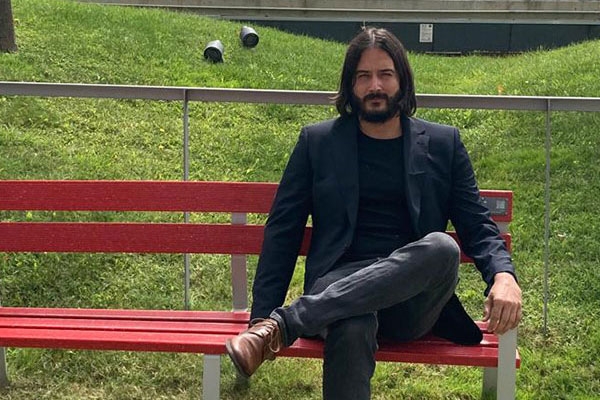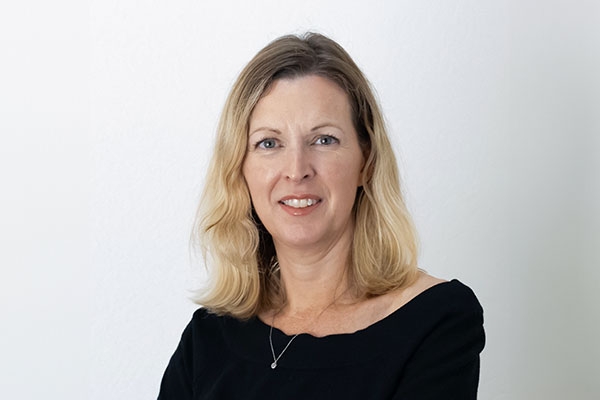You could say that goodwill is a common thread in Ken Nim’s life.
A lifelong learner, Ken wants to instill compassion and charity in his professional and personal development. Completion of our Program in Agile Project Management and Certificate Program in Leadership and Management are just two steps in his path to giving back to the community.
That drive started at a young age.
Ken’s family were refugees from Vietnam who left on a boat and ended up in Hong Kong, where Ken was born. Later, the family immigrated to San Francisco. Ken received a scholarship to UC Berkeley from the Incentive Awards Program (IAP). It is no surprise that with his background and being in the Bay Area, Ken earned a bachelor’s degree in globalization and technology.
“I am forever grateful for the opportunity to attend UC Berkeley,” he says, “and I had decided to go the interdisciplinary studies route to work on my globalization and technology degree. It was still a new concept during my undergraduate studies.
“Because I had benefited from IAP, I was motivated with a passion to give back. My studies in peace and conflict focused on community development with the use of technological tools and how we can learn from global, nonviolent movements to bring technology back to our local communities for a positive impact.”
Leading by example, Ken was already impacting local communities in the Bay Area during college.
“I was a community organizer for housing rights during my final year at UC Berkeley,” Ken says. “After I graduated, we made a significant victory for housing rights in the public housing where I grew up. When it was time for relocation of the residents for redevelopment of the housing site, the developers hired me to help.
“After the relocation was completed, I stayed on to help residents with job development through Visitacion Valley Jobs, Employment, and Training (VVJET). During my undergraduate studies, I learned how to train and educate others to have the necessary employment skills. This role aligned with my personal and professional goals because I believe employment gives people dignity and a purpose. It leads to a positive impact for any communities struggling for sustainability.”
Sustainable Practices in Work and Play
In 2005, Ken became an environmental business manager at Goodwill Industries of San Francisco. This business development role aligned with his passion for nonprofit work, as well as his globalization focus, and influenced the career and educational paths he would later take.
“As business development and operations manager, I was able to develop my skills and continue to make positive impacts through social entrepreneurship,” Ken relates. “The profits from Goodwill go back in supporting their social services. I was able to make hiring decisions and I worked with justice-involved, immigrant and unemployed individuals.”
A year later, Ken shifted to a career with the San Francisco Office of Economic and Workforce Development (OEWD). Here, he has held the position of manager of compliance programs for the past 13 years. During the course of this time, he was introduced to Agile and project management.
“I was in charge of starting a new program at OEWD, which helped me develop my Agile and project management skills,” he says. “I had not been formally trained or understood what Agile and project management practices were prior to my work at OEWD.”
Agility Outside of Work
Ken’s lifelong learning is not just for professional development, either. Since 2007, he has achieved certifications in CrossFit and from the National Academy of Sports Medicine (NASM). He was a personal trainer at 24 Hour Fitness and is a corrective exercises specialist and performance enhancement specialist. Not stopping there, 10 years later he became certified in cardiorespiratory training in fitness and with a fitness nutrition specialization (FNS), also through NASM.
These certifications aided his professional goals in leadership in an unexpected way. And it is all still connected to giving back.
“I have always been interested in health and fitness,” Ken says. “Because of my passion, I obtained the certifications and became a part-time personal trainer in the evenings and on weekends after my regular work schedule. This helped me develop my interpersonal skills and work with diverse groups of people who are focused on their health goals.
“These experiences enhanced my coaching skills outside of just health and fitness.”
Skilling Up for Agile in the Workplace
Between 2011 and 2014, Ken completed two certificates from San Francisco State University, a master’s degree in organization development from the University of San Francisco and our Program in Agile Project Management. Lifelong learner, indeed!
“After completing various certificates and training, I realized the skills I developed at work were aligned with Agile practices,” he recalls. “Plus, my work at OEWD is correlated to my studies of globalization and technology. I was able to be resourceful and take lessons I learned from national and international business practices and connect it with my direct work. It was helpful to think of the practices and figure out how technology can be a tool for community development, and my focus was workforce development.”
On completing our Agile management program, Ken says, “All three courses were very relevant to my career goals as they taught me Agile practices and principles in regular, daily interactions and how to get teams to work together.”
Did I mention that he is also PMP®-certified?
“The PMP® certification has helped me in thinking about projects and organizations from a strategic and systematic approach,” Ken explains. “Certain courses like risk management and human resources enhanced my leadership development. I learned how to better communicate my vision and timelines, in addition to how to identify key resources and problem solve.”
And yet, there were still things to be learned. This time, Ken returned to us in 2018 and completed the Certificate Program in Leadership and Management in two years.
“I highly recommend that anyone register for the leadership and management certificate—not just professionals who aspire to have management or leadership roles,” Ken says.
“The courses have direct correlation to personal and professional development. All the courses were incredible, but if I had to choose two, Business Negotiating and Organizational Communication Strategies for Managers were the most impactful. I use the skills I developed from those two courses daily. From verbal to written communication, I better understand the dynamics between verbal and non-verbal communication and how to listen. Real-life experience in negotiating helped me better understand how to get to a win-win situation that will benefit all parties in a negotiation situation.”
Another course in the certificate also aided in incorporating his leadership ability to day-to-day tasks. “The Power and Influence in Organizations class was helpful in understanding power dynamics and in how to influence teams and colleagues to work together. By understanding dynamics and figuring out how to get to a result where all parties gain, I believe the business courses help professionals better understand the benefit of developing positive relationships and sustaining them.”
Developing and sustaining relationships has been increasingly important in these current times. The COVID-19 pandemic turned traditional business practice on its head and continues to influence how managers and their teams work.
“The pandemic has definitely changed the way I lead and manage,” Ken agrees. “It created a unique challenge of motivation in a virtual environment. Also, we had to suddenly pivot and change practices such as remote work on a large scale. I had to balance between administering an education-related program from a hybrid model of in person and virtual, to providing health and safety processes to give confidence to the team that it is safe to return to work based on their comfort level. Also, not having in-person, face-to-face meetings created a distance in morale and a one-unit, mission-driven approach to performance.”
In this era, no matter what level a professional might think their leadership skills are at, discovering how to be more effective can’t hurt. If potential students want to understand more about what the certificate provides in terms of what it means to be an effective leader, Ken suggests taking Effective Leadership and Management: Understanding and Influencing the Dynamics of Organizations.
“And if you are not able to commit to the full curriculum, I recommend also taking the negotiations or communication class as it can be transferred to personal and professional use—it will help your growth,” he adds.
“I highly recommend the leadership and management program because of the quality of the courses and instructors. You can network with interesting people who are at different stages of their professional development. You also will learn more about yourself.”
Gaining networking skills also benefited Ken on a personal level: He is a founding member of the San Francisco Chapter of Off-Chain, a global meetup group for blockchain enthusiasts. “It’s a casual gathering for anyone interested in the sector and provides a way to network and learn about the emerging industry.”
It sounds like Ken is still finding time to give back to his community while continuing to make a positive difference in his professional one. And that is the dynamic of becoming an effective leader.



